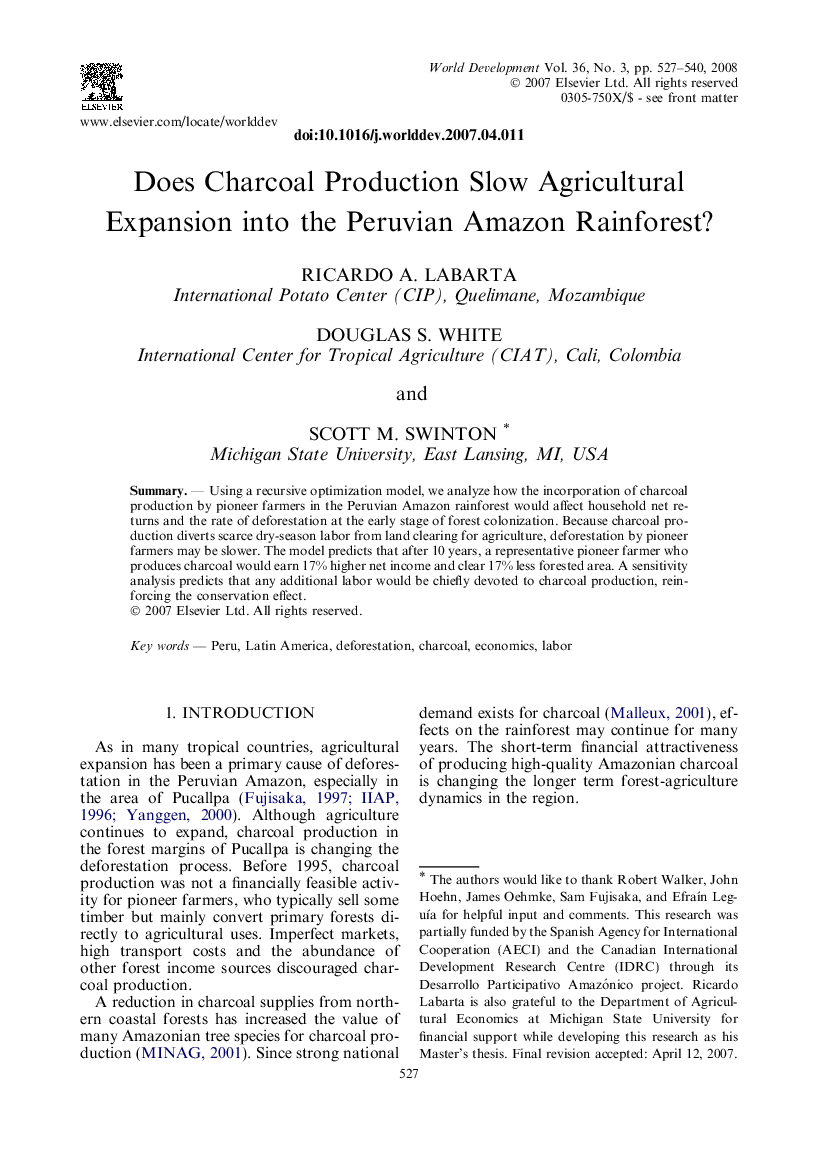| Article ID | Journal | Published Year | Pages | File Type |
|---|---|---|---|---|
| 992213 | World Development | 2008 | 14 Pages |
Abstract
SummaryUsing a recursive optimization model, we analyze how the incorporation of charcoal production by pioneer farmers in the Peruvian Amazon rainforest would affect household net returns and the rate of deforestation at the early stage of forest colonization. Because charcoal production diverts scarce dry-season labor from land clearing for agriculture, deforestation by pioneer farmers may be slower. The model predicts that after 10 years, a representative pioneer farmer who produces charcoal would earn 17% higher net income and clear 17% less forested area. A sensitivity analysis predicts that any additional labor would be chiefly devoted to charcoal production, reinforcing the conservation effect.
Related Topics
Social Sciences and Humanities
Economics, Econometrics and Finance
Economics and Econometrics
Authors
Ricardo A. Labarta, Douglas S. White, Scott M. Swinton,
